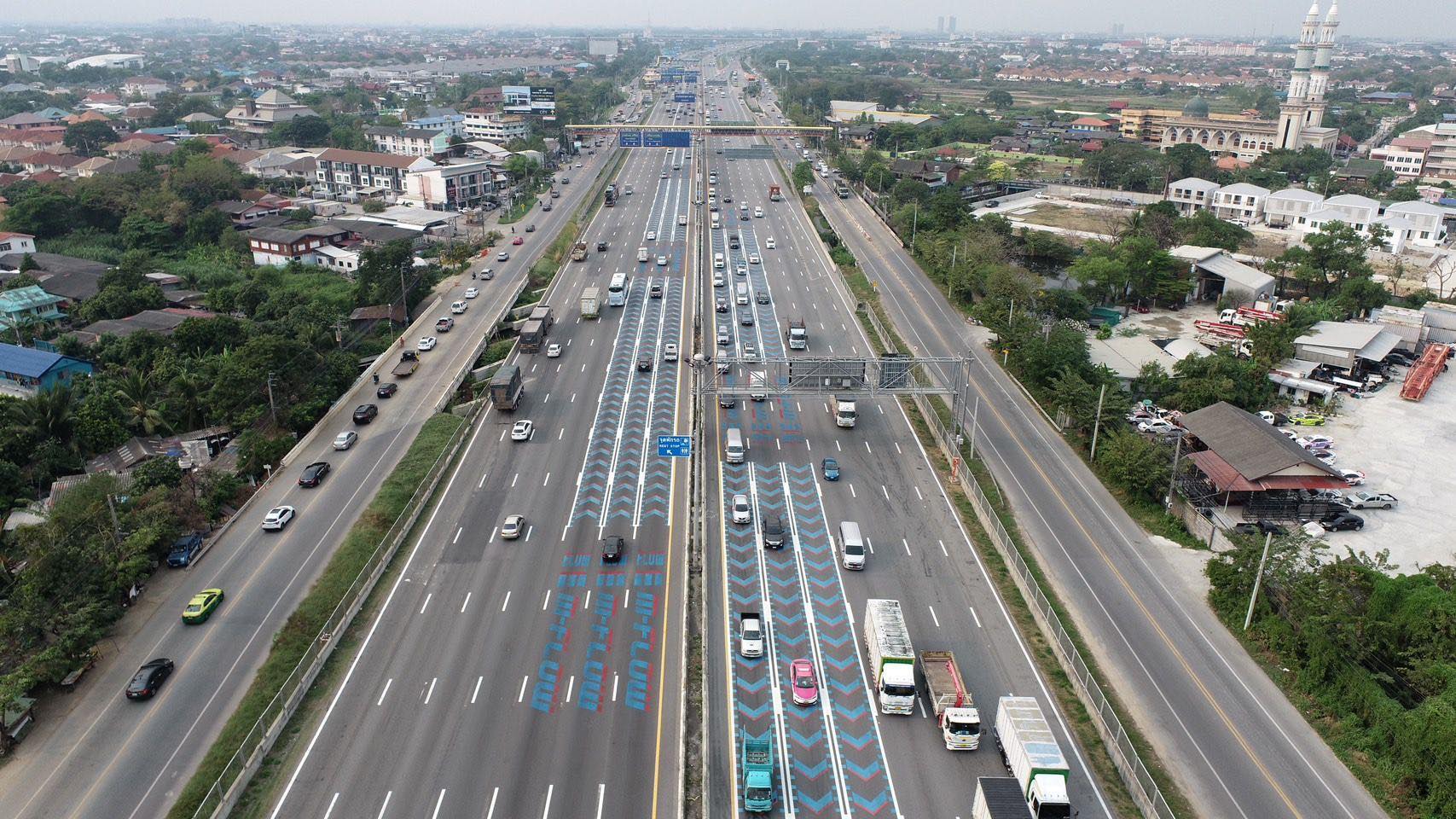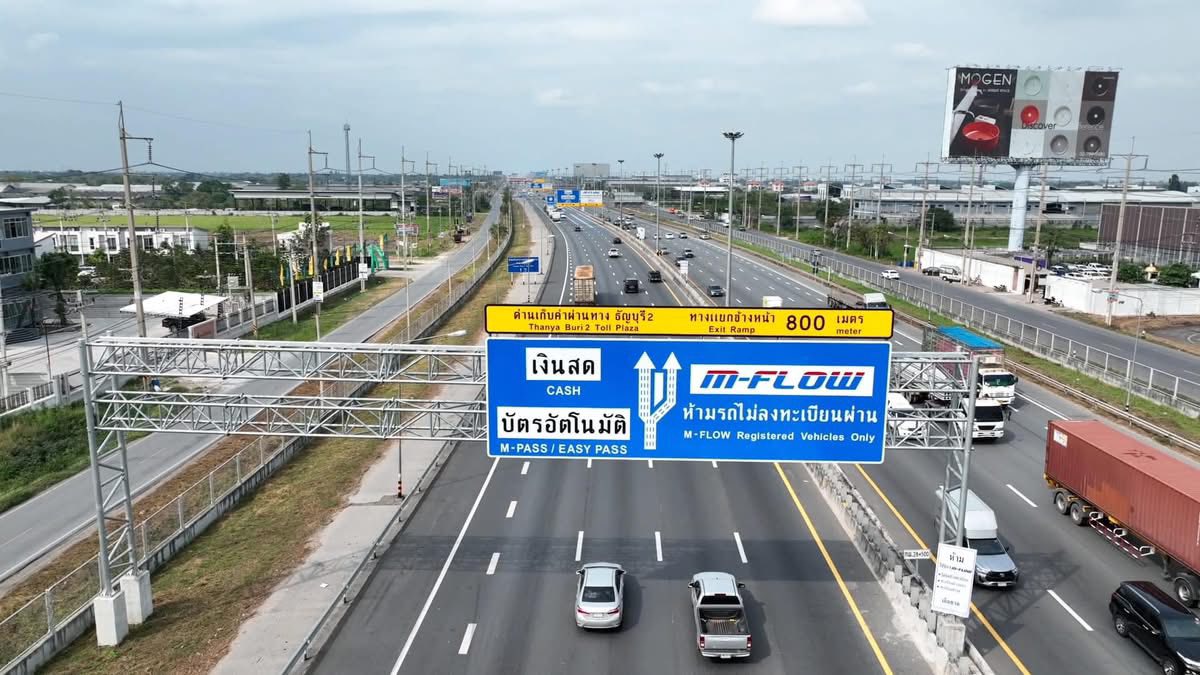Thailand’s Department of Highways has allocated over 64 million baht for a comprehensive evaluation of the M-Flow toll system, following three years of pilot use on four motorway checkpoints since February 2022. The study will determine whether the barrier-free system should be expanded or remain limited to its current trial phase.

The Department of Highways has commissioned the Foundation for Enhancing Efficiency in Government, through its advisory institute, to carry out a formal assessment of the M-Flow toll collection system, at a cost of 13.97 million baht. The funding is part of a larger 64 million baht budget earmarked for overall evaluation and future planning.
M-Flow, or Multi-lane Free Flow, eliminates toll barriers to improve traffic flow and was introduced on four checkpoints—Thap Chang 1 and 2, and Thanyaburi 1 and 2—on Motorway M9 (Bang Pa-in to Bang Phli). The pilot began on 15 February 2022 under a previous transport ministry initiative aimed at reducing congestion.
Over the three-year period, M-Flow recorded more than 134 million uses, averaging 130,000 vehicles per day, representing about 43 percent of total motorway traffic. This marks a significant increase from its initial two months of operation, when usage was below 20 percent.
However, challenges persist. A high number of violations, largely from drivers failing to pay tolls within the seven-day grace period, has raised concerns about enforcement and system management. To address this, the department is in the process of selecting a consultant to develop improved automatic incident detection and violation handling systems, with a separate 50 million baht allocation.

While a broader rollout of M-Flow across four additional motorways was once under consideration—covering more than 500 kilometers and 35 checkpoints—those plans have been paused. The shift in direction follows a change in leadership at the Ministry of Transport.
Meanwhile, the Expressway Authority of Thailand, which had also begun M-Flow trials on the Chalong Rat Expressway, has dismantled the system. It is now reverting to the Electronic Toll Collection (ETC) system using Easy Pass cards, aligning with current ministry policy favoring non-barrier ETC without expanding M-Flow.
The original trial was launched during the tenure of former Transport Minister Saksayam Chidchob. It has since seen policy shifts under current Deputy Prime Minister and Transport Minister Suriya Juangroongruangkit, who has not supported further M-Flow expansion.



